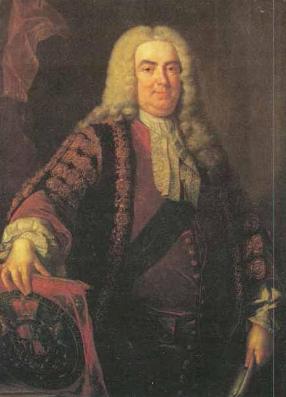A - Prime Path(11.1.1)
Time Limit:1000MS Memory Limit:65536KB 64bit IO Format:%I64d
& %I64u
Description
 The ministers of the cabinet were quite upset by the message from the Chief of Security stating that they would all have to change the four-digit room numbers on their offices.
The ministers of the cabinet were quite upset by the message from the Chief of Security stating that they would all have to change the four-digit room numbers on their offices. — It is a matter of security to change such things every now and then, to keep the enemy in the dark.
— But look, I have chosen my number 1033 for good reasons. I am the Prime minister, you know!
— I know, so therefore your new number 8179 is also a prime. You will just have to paste four new digits over the four old ones on your office door.
— No, it’s not that simple. Suppose that I change the first digit to an 8, then the number will read 8033 which is not a prime!
— I see, being the prime minister you cannot stand having a non-prime number on your door even for a few seconds.
— Correct! So I must invent a scheme for going from 1033 to 8179 by a path of prime numbers where only one digit is changed from one prime to the next prime.
Now, the minister of finance, who had been eavesdropping, intervened.
— No unnecessary expenditure, please! I happen to know that the price of a digit is one pound.
— Hmm, in that case I need a computer program to minimize the cost. You don't know some very cheap software gurus, do you?
— In fact, I do. You see, there is this programming contest going on... Help the prime minister to find the cheapest prime path between any two given four-digit primes! The first digit must be nonzero, of course. Here is a solution in the case above.
1033The cost of this solution is 6 pounds. Note that the digit 1 which got pasted over in step 2 can not be reused in the last step – a new 1 must be purchased.
1733
3733
3739
3779
8779
8179
Input
One line with a positive number: the number of test cases (at most 100). Then for each test case, one line with two numbers separated by a blank. Both numbers are four-digit primes (without leading zeros).
Output
One line for each case, either with a number stating the minimal cost or containing the word Impossible.
Sample Input
3 1033 8179 1373 8017 1033 1033
Sample Output
6 7 0
#include<iostream>
using namespace std;
typedef class
{
public:
int prime;
int step;
}number;
bool JudgePrime(int digit)
{
if(digit==2 || digit==3)
return true;
else if(digit<=1 || digit%2==0)
return false;
else if(digit>3)
{
for(int i=3;i*i<=digit;i+=2)
if(digit%i==0)
return false;
return true;
}
}
int a,b;
bool vist[15000];
number queue[15000];
void BFS(void)
{
int i; //temporary
int head,tail;
queue[head=tail=0].prime=a;
queue[tail++].step=0;
vist[a]=true;
while(head<tail)
{
number x=queue[head++];
if(x.prime==b)
{
cout<<x.step<<endl;
return;
}
int unit=x.prime%10; //获取x的个位
int deca=(x.prime/10)%10; //获取x的十位
for(i=1;i<=9;i+=2) //枚举x的个位,保证四位数为奇数(偶数必不是素数)
{
int y=(x.prime/10)*10+i;
if(y!=x.prime && !vist[y] && JudgePrime(y))
{
vist[y]=true;
queue[tail].prime=y;
queue[tail++].step=x.step+1;
}
}
for(i=0;i<=9;i++) //枚举x的十位
{
int y=(x.prime/100)*100+i*10+unit;
if(y!=x.prime && !vist[y] && JudgePrime(y))
{
vist[y]=true;
queue[tail].prime=y;
queue[tail++].step=x.step+1;
}
}
for(i=0;i<=9;i++) //枚举x的百位
{
int y=(x.prime/1000)*1000+i*100+deca*10+unit;
if(y!=x.prime && !vist[y] && JudgePrime(y))
{
vist[y]=true;
queue[tail].prime=y;
queue[tail++].step=x.step+1;
}
}
for(i=1;i<=9;i++) //枚举x的千位,保证四位数,千位最少为1
{
int y=x.prime%1000+i*1000;
if(y!=x.prime && !vist[y] && JudgePrime(y))
{
vist[y]=true;
queue[tail].prime=y;
queue[tail++].step=x.step+1;
}
}
}
cout<<"Impossible"<<endl;
return;
}
int main(void)
{
int test;
cin>>test;
while(test--)
{
cin>>a>>b;
memset(vist,false,sizeof(vist));
BFS();
}
return 0;
}
先说一下bfs吧,,就是广搜,宽搜,
比如这一题,首先拿第一格例子,,1033 8179;
设一个数初始1033,当等于8179时,说明能结束了;
首先搜1033中只更改一个数的,,,并记下此时到达该数的步数
是(排除1033本身)
1031 1
1039 1
1013 1
1063 1
1093 1
1433 1
1733 1
1933 1
第二步,再分别对这8个数进行广搜 (再次搜索时排除这9个数),这时这些数搜到的数的步数都为2;
第三步,重复第二步
。。。。。
此时,谁先到达8197,他所代表的步数即为最小步数,输出,结束。